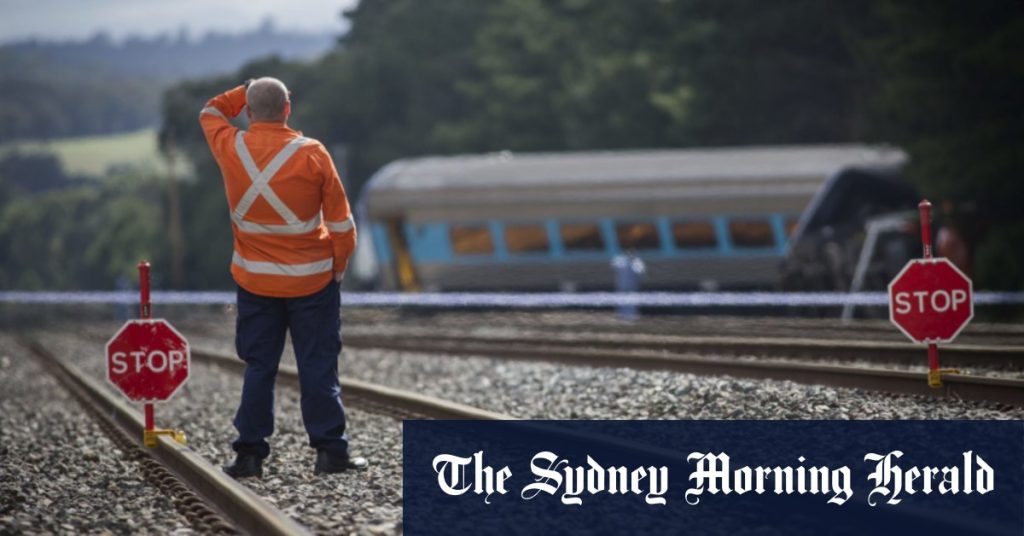The Office of the National Rail Safety Regulator charged Australian Rail Track Corporation and NSW Trains with breaching Victoria’s rail safety laws after a train derailed at more than 100 km/h instead of the recommended speed of about 15 km/h. The two companies pleaded guilty, and were convicted and fined by Melbourne Magistrates’ Court. The court imposed fines of $375,000 on ARTC and $150,000 on NSW Trains, with a maximum penalty of $1.5 million. The court expressed deep sympathies to all persons affected by the tragedy, which was described as the most difficult case the magistrate had dealt with in two years. Family members of the two men who were killed in the derailment sobbed and hugged in court during the sentencing.
The regulators found that the rail transport operators responsible for the XPT Sydney-to-Melbourne service failed to ensure train drivers were aware of a temporary track change before the derailment. The National Rail Safety Regulator stated that key safety measures were not in place, and the driver and other employees were not made aware of the upcoming track divergence at Wallan. The investigation revealed that a fire in a signalling hut months prior had led to paper documents being given to train drivers instead of the usual system. This breakdown in risk management was cited as a contributing factor to the fatal derailment. Additionally, the Australian Transport Safety Bureau’s final report found that the design of the XPT driver’s cab and lack of proper passenger briefings, onboard guides, and signage also played a role in the deaths of the driver and co-driver.
The court heard that the rail operators did not implement extra safety measures on tracks when signals were down, leading to confusion and lack of awareness about the track change at Wallan. The lack of clear communication and proper safety protocols in place were identified as major factors in the derailment. This failure to ensure the safe running of the XPT service ultimately resulted in the tragic loss of two lives. The fines imposed by the court were seen as a way to hold the companies accountable for their negligence and to serve as a warning to others in the industry to prioritize safety and enforce proper procedures to prevent such incidents in the future. The families of the victims expressed their grief and sought justice for their loved ones as they grappled with the devastating impact of the derailment.
The magistrate emphasized that no penalty imposed by the court could truly reflect the severity of what had occurred that day. The tragic derailment and loss of life had a profound impact on all those involved, and the court acknowledged the pain and suffering experienced by the families of the victims. The fines imposed on ARTC and NSW Trains were intended to serve as a deterrent and reminder of the importance of prioritizing safety in the rail industry. The court’s decision to convict and fine the companies was part of the process of seeking accountability and ensuring that the necessary steps were taken to prevent similar accidents in the future. The tragic derailment at Wallan served as a wake-up call for the rail industry to address safety concerns and implement measures to prevent such catastrophic incidents from happening again.
The court’s decision to convict ARTC and NSW Trains and impose fines highlighted the need for greater oversight and enforcement of safety regulations in the rail industry. The tragedy at Wallan underscored the consequences of negligence and failure to adhere to proper safety protocols. The regulator’s findings regarding the lack of key safety measures and communication breakdowns were critical in understanding the factors that contributed to the fatal derailment. By holding the responsible companies accountable and implementing stricter safety measures, the rail industry could work towards preventing similar accidents and ensuring the safety of all passengers and employees. The fines imposed by the court were a step towards justice for the victims and their families, as well as a reminder of the importance of maintaining safety standards in rail transport operations.


